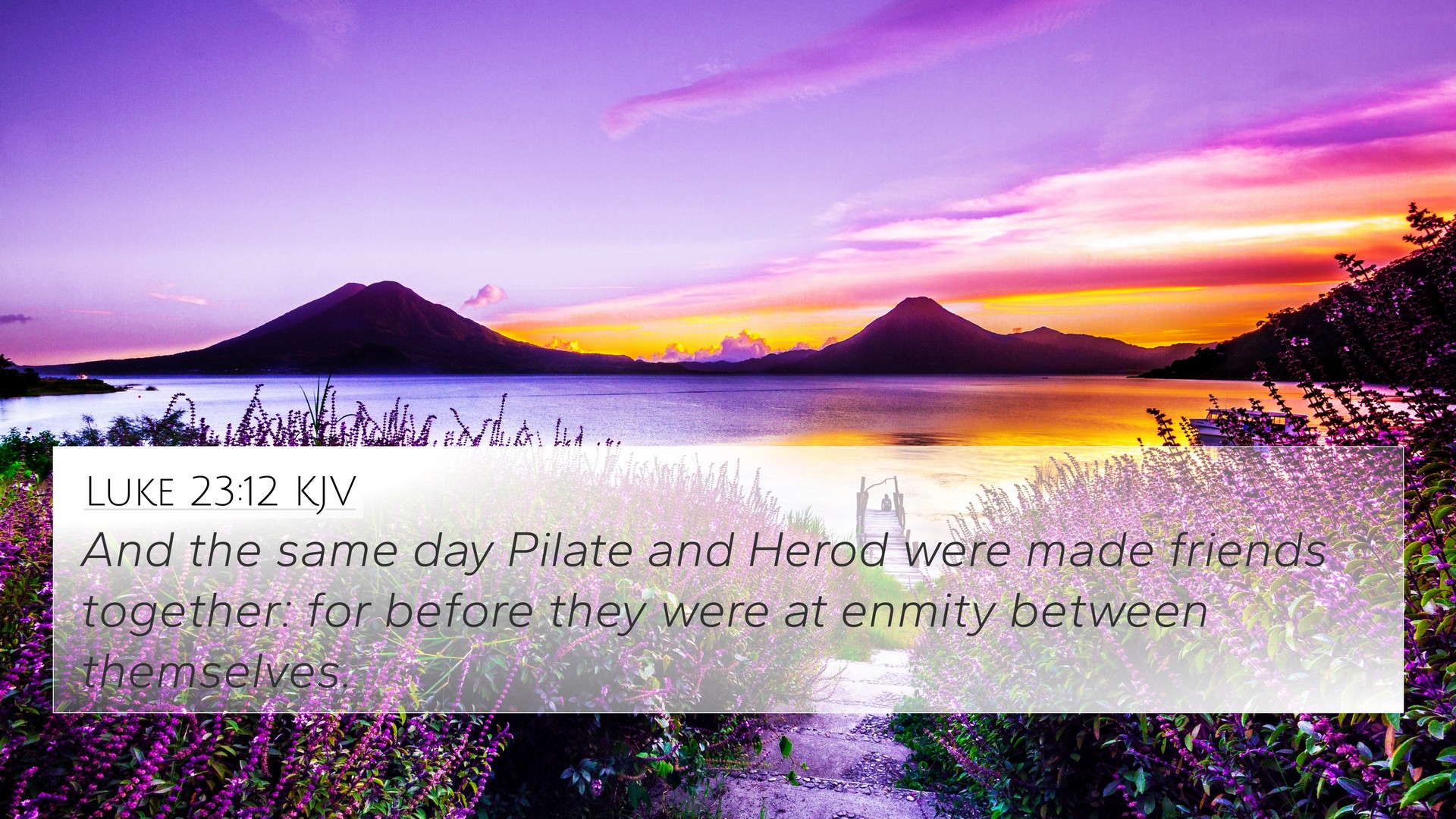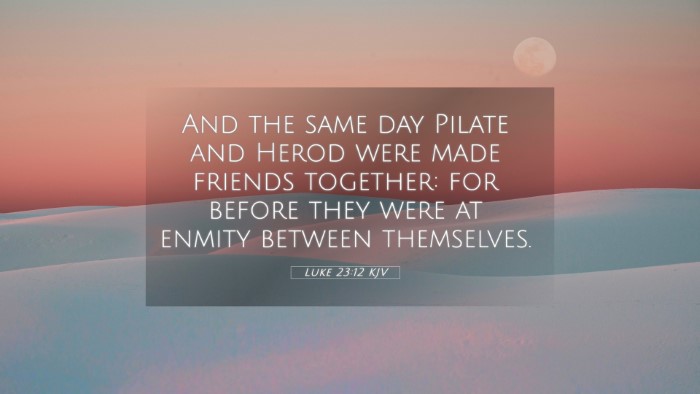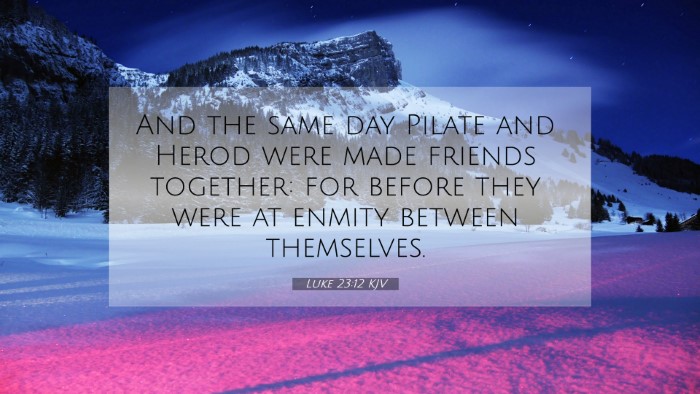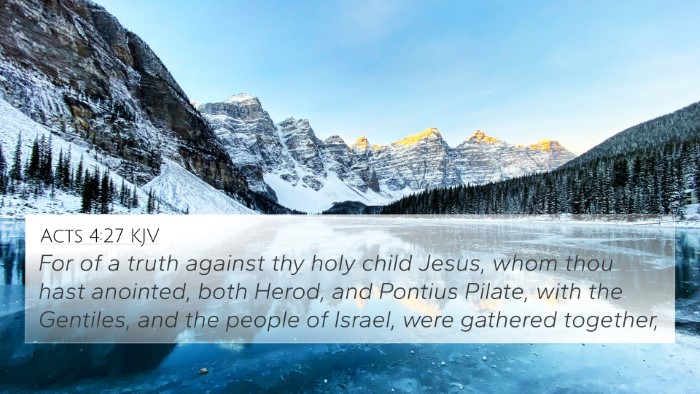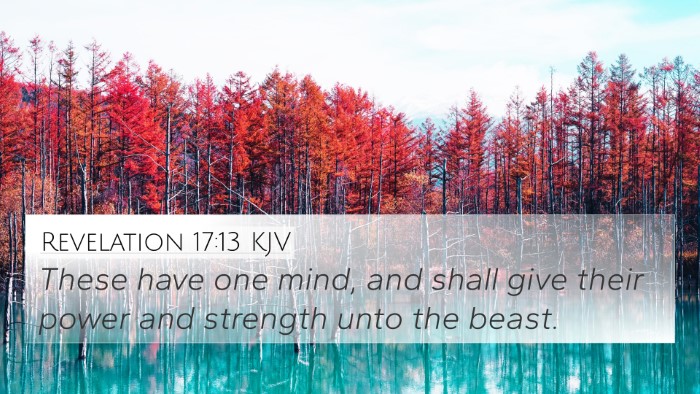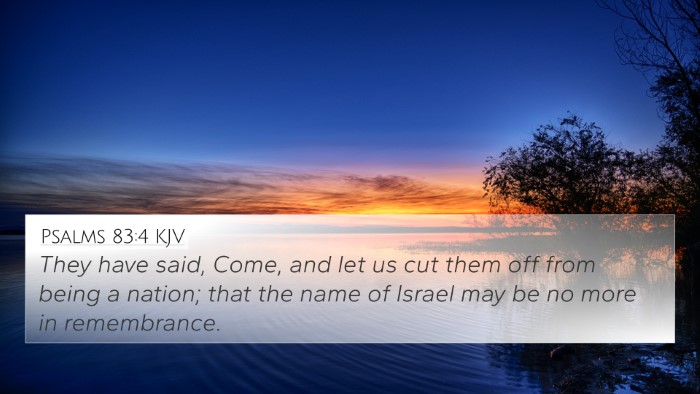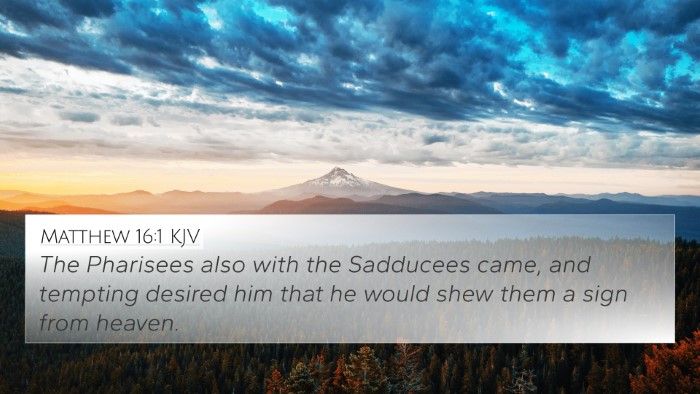Meaning and Interpretation of Luke 23:12
Luke 23:12 states: "And the same day Pilate and Herod were made friends together: for before they were at enmity between themselves."
Contextual Overview
This verse occurs during the trial of Jesus before Pilate and Herod. It highlights a significant moment in the events leading to the crucifixion, emphasizing the political dynamics at play.
Combined Insights from Public Domain Commentaries
-
Matthew Henry:
Henry discusses how Pilate and Herod, previously enemies, find common ground in their dealings with Jesus. This indicates not only a unity in their opposition to Christ but also reflects a broader aversion to His teachings.
-
Albert Barnes:
Barnes elaborates on the irony of their friendship being forged through their shared rejection of Jesus. This alliance underscores how the powerful can unite against a common threat, demonstrating the lengths to which political leaders will go to maintain their authority.
-
Adam Clarke:
Clarke emphasizes the fulfillment of prophecy through this event, illustrating that even those in positions of power can be drawn together for a purpose that aligns with God’s sovereign plan, albeit unwittingly.
Thematic Connections
This verse resonates with several themes in scripture, particularly the nature of human relationships and the political manipulation of religious matters. It also serves as an embodiment of the collective rejection of Christ by both religious and secular authorities.
Related Bible Verses and Cross-References
- Luke 23:1-3: The initial accusations against Jesus and Pilate’s inquiries.
- Matthew 27:17: The choice between Barabbas and Jesus, highlighting the crowd’s rejection.
- John 18:28-32: The political maneuvering surrounding Jesus’ trial.
- Mark 15:10: The motivations of the leaders against Jesus.
- Psalm 2:1-3: Prophetic insight into the rebellion of kings against the Anointed One.
- Acts 4:27-28: The early church reflects on Herod and Pilate's collusion against Jesus.
- Isaiah 53:3: The prophecies concerning the rejection of the Messiah.
- Proverbs 16:7: The principle that when a man's ways please the Lord, he makes even his enemies to be at peace with him.
Understanding the Dynamics of Political Power in Scripture
The friendship that arose between Pilate and Herod is a stark reminder of how political dynamics can shift. These two figures are emblematic of rulers who prioritize their positions over justice, as they join forces against an innocent man, Jesus.
Applications to Contemporary Belief
For modern readers, Luke 23:12 serves as a reflective point on the nature of alliances formed not just in the political realm but also in personal and spiritual matters. It challenges individuals to consider the motives behind relationships and the challenges faced when standing for truth against collective opposition.
SEO Considerations
This analysis can be enhanced by exploring:
- Comparative Bible verse analysis of Luke 23:12 with other Biblical passages that depict alliances in opposition to God's will.
- Utilization of tools for Bible cross-referencing to uncover additional connections between this moment and other prophetic texts.
- Diving deeper into how to recognize and utilize cross-references in biblical study effectively.
- Exploring themes of rejection throughout scripture to synthesize a broader understanding of how believers interpret opposition.
Conclusion
In conclusion, Luke 23:12 represents a pivotal moment between Pilate and Herod, illustrating how power dynamics can unify leaders, even those previously at odds, against a greater force perceived as a threat. Understanding these dynamics and their implications offers valuable insights for both historical understanding and personal application in faith.
